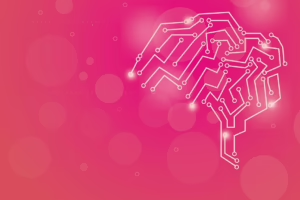Artificial Intelligence Unleashed: Enroll in Our Groundbreaking Course Today!
Introduction
Artificial Intelligence (AI) is at the forefront of technological advancement, transforming industries and reshaping our lives in ways we couldn’t have imagined a few decades ago. From self-driving cars to advanced healthcare diagnostics, the applications of AI are vast and impactful. This article explores the wonders of AI, its implications for society, and the thrilling opportunity to enroll in a groundbreaking course designed to equip you with the skills needed to thrive in an AI-driven world.
What is Artificial Intelligence?
At its core, AI involves the simulation of human intelligence processes by machines, particularly computer systems. These processes include learning (the acquisition of information and rules for using it), reasoning (using rules to reach approximate or definite conclusions), and self-correction. AI technologies can be categorized into two main types: narrow AI, which is designed to perform a narrow task (like facial recognition or internet searches), and general AI, which aims to understand or learn any intellectual task that a human can do. The latter, while still largely hypothetical, is a focal point of ongoing research.
The Historical Context of AI
The concept of AI dates back to ancient history with myths of mechanical beings endowed with intelligence. However, the formal pursuit began in the mid-20th century, with pioneers like Alan Turing and John McCarthy laying the groundwork for what we now recognize as AI. Turing’s work on the Turing Test established a benchmark for evaluating machine intelligence, while McCarthy’s organization of the Dartmouth Conferences in 1956 is often credited with the birth of AI as a field of study.
Throughout the decades, AI has experienced various cycles of optimism and skepticism, with periods of intense research and development followed by “AI winters,” where funding and interest waned. However, recent advancements in machine learning, particularly deep learning, fueled by the increase in computational power and data availability, have ushered in a new era of AI renaissance.
The Current Landscape of AI
Today, AI is embedded in numerous applications, enhancing our day-to-day experiences. From virtual assistants like Siri and Alexa to recommendation algorithms on streaming services, AI systems are making our lives more convenient. Industries are leveraging AI for predictive analytics in finance, automation in manufacturing, and personalized experiences in marketing. Healthcare is seeing breakthroughs, with AI-driven diagnostics and personalized medicine leading to better patient outcomes.
Notable AI Technologies
-
Machine Learning (ML): A subset of AI that enables machines to learn from data without being explicitly programmed. ML algorithms can improve their performance over time as more data becomes available.
-
Natural Language Processing (NLP): This technology allows machines to understand and respond to human language. It’s the backbone of chatbots and virtual assistants.
-
Computer Vision: An area focused on enabling machines to interpret and make decisions based on visual data from the world, fueling advancements in sectors ranging from security to healthcare.
-
Robotics: AI-driven robotics has applications in various fields, including manufacturing, logistics, and even home automation.
-
Generative Models: These models, such as Generative Adversarial Networks (GANs), can create new content (images, videos, text) that fits the distribution of the training data, thereby revolutionizing creative processes.
The Ethics of AI
While the technological advancements are impressive, it’s crucial to discuss the ethical implications of AI. Concerns arise about data privacy, job displacement due to automation, biases in AI algorithms, and the potential for misuse of AI in surveillance or military applications.
-
Data Privacy: The collection and use of personal data by AI systems raise significant privacy concerns. Regulations like the General Data Protection Regulation (GDPR) are attempting to address these issues by ensuring that individuals have control over their data.
-
Bias and Fairness: AI systems can inadvertently perpetuate biases present in the training data. For instance, facial recognition technology has demonstrated racial and gender biases, leading to calls for greater transparency and fairness in AI development.
-
Job Displacement: Automation driven by AI could displace jobs across various sectors. The challenge lies in retraining the workforce to adapt to an increasingly automated job landscape.
-
Autonomy and Accountability: As AI systems become more autonomous, questions about accountability arise. If an AI system makes a mistake that harms someone, who is responsible?
Addressing these issues through ethical guidelines and regulations is essential to harnessing the potential of AI while mitigating negative consequences.
Why Enroll in Our Groundbreaking Course?
In light of the rapid developments in AI and its transformative potential, our groundbreaking course on artificial intelligence is designed to empower you with the skills and knowledge necessary to navigate this dynamic field. Here are several compelling reasons to enroll:
1. Expert-Led Instruction
Our course is designed by industry experts and academicians who bring years of experience in AI research and application. You’ll learn from the best in the field, gaining insights that are both theoretical and practical.
2. Hands-On Learning
Theoretical knowledge is crucial, but hands-on experience is where true learning happens. Our course includes practical projects, case studies, and real-world applications that will help you solidify your understanding of AI concepts.
3. Networking Opportunities
Enrolling in our course offers you the chance to connect with like-minded individuals, industry experts, and potential employers. Building a network in the AI community can open doors for collaboration, mentorship, and job opportunities.
4. Comprehensive Curriculum
Our curriculum covers a wide range of AI topics, including machine learning, deep learning, natural language processing, and ethics. No matter your background, the course is structured to cater to both beginners and those with some prior knowledge of AI.
5. Flexible Learning Options
Understanding the diverse needs of our students, we offer flexible learning options, including online modules, in-person workshops, and weekend classes. You can learn at your own pace and according to your schedule.
6. Career Advancement
With AI skills in high demand across numerous sectors, completing this course enhances your employability and can lead to exciting career opportunities. Whether you want to be a data scientist, AI researcher, or an AI ethics specialist, our course provides the foundation necessary for advancement.
Real-World Applications of AI
Understanding how AI is applied in real-world scenarios can inspire and motivate learners. Here are some domains where AI has made a significant impact:
Healthcare
AI is revolutionizing healthcare through predictive analytics, robotic surgery, and personalized medicine. For instance, machine learning algorithms can analyze a patient’s medical history to predict potential health risks. AI-powered diagnostic tools assist in reading radiology images more accurately, improving patient outcomes.
Finance
In the finance sector, AI algorithms assess risk and detect fraud by analyzing transaction patterns. Robo-advisors use AI to provide personalized financial advice to clients based on their risk tolerance and investment goals.
Retail
Retailers utilize AI for inventory management, customer service automation, and personalized marketing strategies. Chatbots provide 24/7 customer support, while recommendation engines enhance the shopping experience by suggesting products tailored to individual preferences.
Transportation
Self-driving vehicles are one of the most talked-about applications of AI. Companies like Tesla and Waymo are utilizing AI to create autonomous cars that can navigate complex environments, potentially reducing accidents caused by human error.
Education
AI can personalize learning experiences for students by adapting content to their individual needs and preferences. Intelligent tutoring systems provide additional support, while administrative tasks can be automated to allow educators to focus more on teaching.
The Future of AI
As we look to the future, the potential of AI appears limitless. Innovations in quantum computing could further enhance machine learning capabilities, while advances in neuroscience may lead to breakthroughs in general AI. However, with great power comes great responsibility. Society must navigate the challenges of AI deployment while ensuring ethical practices are upheld.
Emerging Trends
-
Explainable AI (XAI): As AI systems become more complex, the need for transparency in decision-making processes is rising. XAI aims to make AI decisions understandable to users, promoting trust and accountability.
-
AI in Cybersecurity: With cyber threats becoming more sophisticated, AI is playing a crucial role in cybersecurity. AI algorithms can detect anomalies and respond to threats in real time, enhancing security measures.
-
AI and Climate Change: AI technologies are being harnessed to address climate change, from optimizing energy consumption to improving climate modeling and predictions.
-
Human-AI Collaboration: The future may not be about replacing humans but rather enhancing human capabilities through collaboration with AI. Enterprises are exploring how AI can augment human decision-making and creativity.
Conclusion
Artificial Intelligence is already reshaping our world, and its potential for future growth is vast. Whether you’re a complete novice or someone seeking to deepen your understanding, enrolling in our groundbreaking AI course will equip you with vital skills for a career in this exciting field.
Join us in discovering the transformative power of AI and positioning yourself at the forefront of technological advancement. Embrace the future—enroll in our course today!
References
- Turing, A. M. (1950). Computing Machinery and Intelligence. Mind, LIX(236), 433-460.
- Russell, S., & Norvig, P. (2010). Artificial Intelligence: A Modern Approach. Prentice Hall.
- Duhigg, C. (2016). Smarter Faster Better: The Secrets of Being Productive in Life and Business. Random House.
- Jordan, M. I., & Mitchell, T. M. (2015). Machine Learning: Trends, Perspectives, and Prospects. Science, 349(6245), 255-260.
({modern_footnote_source})


























Add Comment